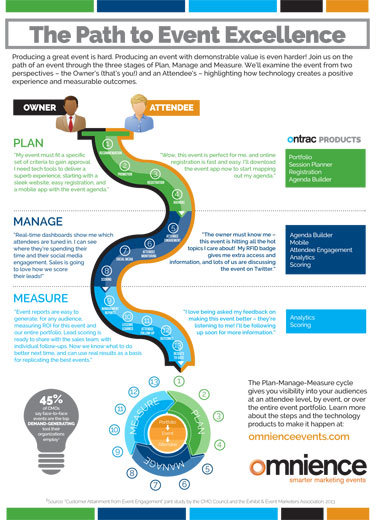Does one of your biggest budget items need a makeover?
Heads up, B2B marketers. Did you know that events are typically the second-biggest line item, after sales force costs, in corporate marketing budgets? According to a report by the Convention Industry Council, spending on hosting, attending, and exhibiting at events constitutes 21% of marketing budgets.
That’s big bucks—and much of it isn’t being spent wisely, say the authors of “Get More from Your Event Spend,” published recently by Harvard Business Review. “Three of five marketers use no tools to measure event ROI, and most companies plan and execute events without specific business objectives,” the article states.
The authors make the same points I’ve espoused repeatedly in this blog (such as here, here and here, for starters):
- Marketers need to show top management how event spend contributes to achieving specific goals—especially the C-suite’s financial goals.
- Technology can be a huge alley in tracking event effectiveness. “There are tools to track ROI milestones that are currently dark holes in most marketing budgets,” the article notes.
- If attendees are distracted by their smartphones, turn the lemons into lemonade. Give attendees a mobile app that goes beyond content distribution—give them networking and new ways to engage before, during, and after the event.
- After the event, don’t rely on “smile sheets” as your key metric of event effectiveness. Find real ways to measure whether the event’s outcomes met your goals. (Here are the steps we recommend at Omnience for marketing events —and the process is strikingly similar for government events, too.)
I’ll finish with my mantra from many past blogs: Get the C-suite to stop viewing the company’s events as point-in-time costs that break the budget. Instead, show them proof that your events are strategic assets that can produce measurable, ongoing value long after each event has ended.




